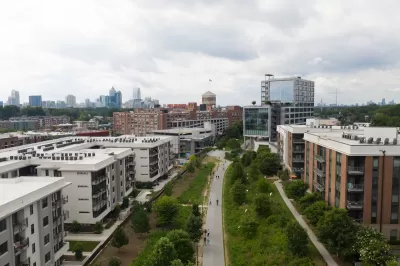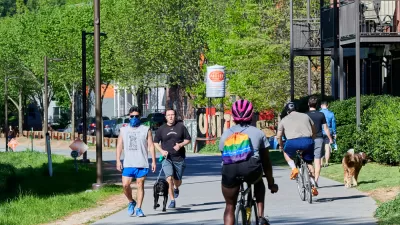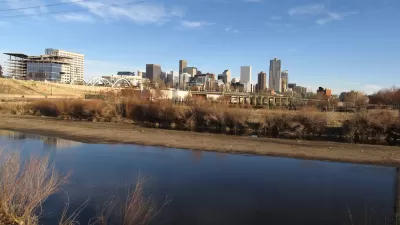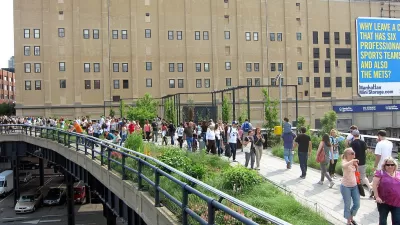New parks are great—but some projects displace the very people the green spaces are meant to serve.

“Again and again, researchers have found that access to urban green spaces – from parks to gardens to greenways – positively impacts multiple measures of health, such as community satisfaction, social cohesion and access to healthy foods.”
However, caution Viniece Jennings, Alessandro Rigolon, and Na’Taki Osborne in Next City, new parks can also lead to the displacement of low-income residents and, “perhaps counterintuitively, green gentrification can also exacerbate inequities in health, finances, quality of life and — ironically — access to green spaces.”
As the authors explain, “A scoping review on green gentrification and health examines numerous studies wherein residents experience a lower sense of community, diminished sense of belonging and less green space usage among long-term residents.” The research shows that increasing property values and a lack of renter protections can put greener cities out of reach for many households. “For example, although affordable housing was initially a part of the vision of the Atlanta Beltline, a shift in priorities and a state ban on rent control (among other factors) diminished this commitment,” the article points out.
“To support health equity as the pathway for everyone to achieve optimal health, cities must address the factors that diminish affordable housing and the consequences of green gentrification.” Some cities are working to address these issues using tools like inclusionary zoning requirements near large parks and rent stabilization initiatives.
The article concludes, “Improving neighborhoods is not the fundamental problem with gentrification and possible residential displacement. It’s the systemic force that aims to set the bar of who has long-term access to quality environments and affordable housing.”
FULL STORY: When Green Spaces Displace Residents, Our Cities’ Health Suffers

Trump Administration Could Effectively End Housing Voucher Program
Federal officials are eyeing major cuts to the Section 8 program that helps millions of low-income households pay rent.

Planetizen Federal Action Tracker
A weekly monitor of how Trump’s orders and actions are impacting planners and planning in America.

Ken Jennings Launches Transit Web Series
The Jeopardy champ wants you to ride public transit.

California Invests Additional $5M in Electric School Buses
The state wants to electrify all of its school bus fleets by 2035.

Austin Launches $2M Homelessness Prevention Fund
A new grant program from the city’s Homeless Strategy Office will fund rental assistance and supportive services.

Alabama School Forestry Initiative Brings Trees to Schoolyards
Trees can improve physical and mental health for students and commnity members.
Urban Design for Planners 1: Software Tools
This six-course series explores essential urban design concepts using open source software and equips planners with the tools they need to participate fully in the urban design process.
Planning for Universal Design
Learn the tools for implementing Universal Design in planning regulations.
Ada County Highway District
Clanton & Associates, Inc.
Jessamine County Fiscal Court
Institute for Housing and Urban Development Studies (IHS)
City of Grandview
Harvard GSD Executive Education
Toledo-Lucas County Plan Commissions
Salt Lake City
NYU Wagner Graduate School of Public Service





























